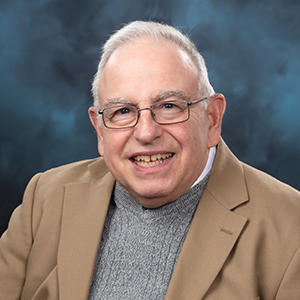Bruce A. Tomkins
Research Staff at Oak Ridge National Laboratory, Oak Ridge, TN
BA 1973
Bobbitt Group
Your life as a professional scientist should be a significant part of your life, but not all of it. Make room for other experiences, hobbies, and in particular, people.
Additional degrees & licenses received
University of Illinois at Urbana-Champaign, M.S. 1975, Ph.D. 1978
What is your current (or most recent) job, what does a typical day look like, and how did UConn prepare you for this role?
I am currently determining environmental/ultrace levels of radionuclides in water, air, and soil samples in support of ORNL’s disposal permit. These samples appear at both regular and irregular intervals, and I need to produce results with appropriate quality assurance to satisfy the State of Tennessee regulators. Prior to this assignment, I was identifying trace and ultratrace levels of various organic toxic compounds in environmental samples. Some of these target compounds included explosives, degradation products of nerve agents, pesticides, and components of cigarette smoke.
Tell us about your experience as a Chemistry student at UConn.
My professors at UConn, particularly Drs. James Bobbitt, James Stuart, and John Stock, instilled a love of analytical and organic chemistry, and I appreciated their enthusiasm for their work.
Can you tell us about your experience post-graduation?
Immediately after graduation, I began graduate studies at the University of Illinois at Urbana-Champaign in analytical chemistry, with a focus on the analysis of trace levels of organic compounds in environmental samples. After I graduated from the University of Illinois, I began working for the Oak Ridge National Laboratory on various analytical projects. I am currently in my 44th year (count ’em!) as a Research Staff member at ORNL.
What is one piece of advice that you would give to current students?
First, try to attend graduate school in a different part of the country than your undergraduate school. Different parts of the country view a lot of things differently. If you have been in New England all of your life, go West or South. I received that piece of advice from my Honors advisor, and I’ve found that it is true.
Second, be flexible in your approach and be ready to learn new things. For example, the professional field which you studied so intently as a student may suddenly disappear. Be ready to learn something else.
Third, your life as a professional scientist should be a significant part of your life, but not all of it. Make room for other experiences, hobbies, and, in particular, people.
